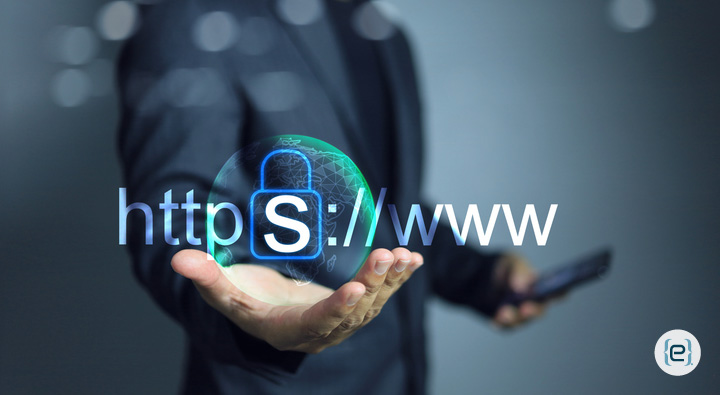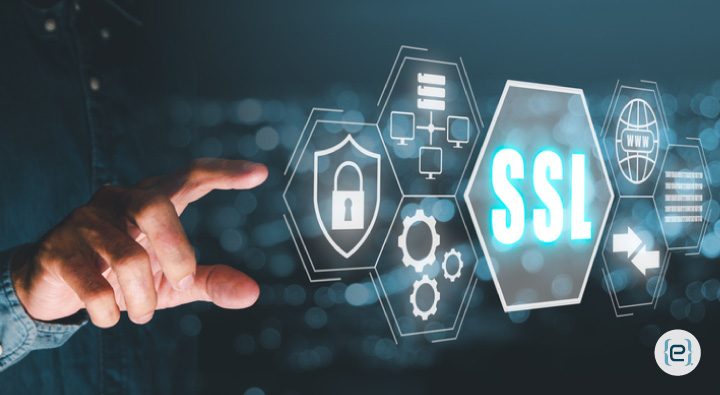Maintaining the security of your website is more vital than ever. One primary way to protect your site and user data is by running SSL (Secure Sockets Layer) certificates.
What are SSL Certificates?
Digital certificates known as SSL certificates let the web server and visitor’s browser establish encrypted connections and confirm the identity of a website. This encryption guarantees that every data sent stays private and integral, and safeguards important data, including credit card numbers, login credentials, and personal information from illegal access.
Why SSL Certificates Matter
SSL certificates are essential for many purposes, from consumer confidence to SEO benefits and data security. Here is a closer look at the reasons SSL certificates are truly essential for your website:
Data Encryption: One of the SSL certificate’s primary uses is the encryption of data transferred between the user’s browser and your website. This encryption renders data into an unintelligible format that the intended recipient alone could decipher. Without encryption, sensitive information — such as credit card numbers, personal data, and login passwords — may be intercepted and read by thieves. In contrast, SSL certificates guarantee that this information stays safe and confidential, shielding your consumers against identity theft and fraud.
Verification: SSL certificates confirm that your website is exactly what it claims to be. This authentication system helps to identify phishing efforts — where hostile sites pass for real ones — and helps to stop information theft. Seeing the “https” in the URL, or the padlock icon, lets users know they are accessing the official site rather than a phony. Conversations and online transactions depend on this extra degree of confidence.
Data Integrity: SSL certificates ensure that data transferred between the client and the server stays unaltered. Data integrity — especially for private interactions, form submissions, and online sales —gives users confidence that activity posted on your website maintains quality and dependability.
Effects on SEO: Safe websites generally are ranked higher by search engines like Google. In 2014, for example, Google declared that HTTPS would be a ranking indicator. Thus, an SSL certificate will improve the SEO of your website, helping it to rank higher in search results and attract more visitors. In turn, this higher ranking may generate more leads, more traffic, and better conversion rates.
Confidence and Credibility: Websites with SSL certificates appear more polished and trustworthy. A safe connection also helps visitors to feel confident that their data is safe, thus enhancing the likelihood they will visit the site and complete purchases. A safe website is crucial in developing customer confidence, especially for e-commerce sites and businesses that manage sensitive data. Without SSL, visitors may get warnings from their browsers that deter them from visiting the website.

The lowdown on SSL Certificates
SSL certificates are available in different types and validation levels to meet diverse security needs:
Domain Validated (DV): Basic SSL certificates that use email or DNS validation techniques to verify ownership of the domain.
Organization Validated (OV): Certificates confirm the domain owner and authenticate that the business organization is affiliated with the URL.
Extended Validation (EV): Certificates verifies that the website owner has undergone the most extensive level of identity background checks to certify that the website is authentic and legitimate.
Best Practices for SSL Implementation
Using SSL certificates calls for various recommended practices to guarantee efficient compliance and security:
Choose the Right Certificate Type: An SSL certificate should fit the security requirements of your website and user confidence expectations.
Purchase from Trusted Certificate Authorities (CAs): Getting SSL certificates from reliable CAs will guarantee your adherence to industry security standards and interoperability with main browsers.
Proper Installation and Configuration: Install SSL certificates appropriately and set your web server to provide all resources — such as pictures, and scripts—over HTTPS to avoid getting “mixed content: alerts.
Implement HTTP Strict Transport Security (HSTS): Further improve security by letting HSTS tell web browsers to only communicate with your website via safe HTTPS connections.
Regular Monitoring and Renewal: Track SSL certificate expiration dates and swiftly renew them. This will let you avoid security failures and maintain continuous protection.
Investing in an SSL certificate can greatly help you to guarantee the general operation, dependability, and security of your website. This helps you protect user information, improve your website’s reputation, and increase search engine results page ranking.
Contact eMazzanti now to find out how we can help you obtain an SSL certificate to protect your website. Ensuring the security of your website can help you maintain client confidence, protect private data, and keep business activities free from disruption. Let us assist you in safeguarding your online profile with this necessary solution.







